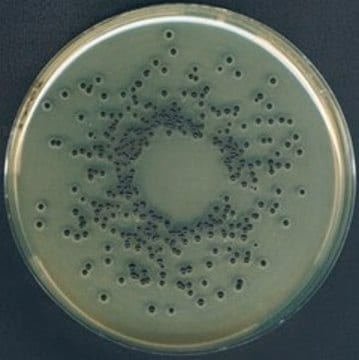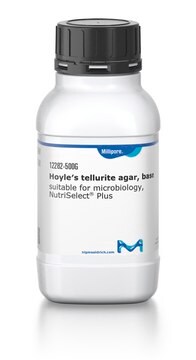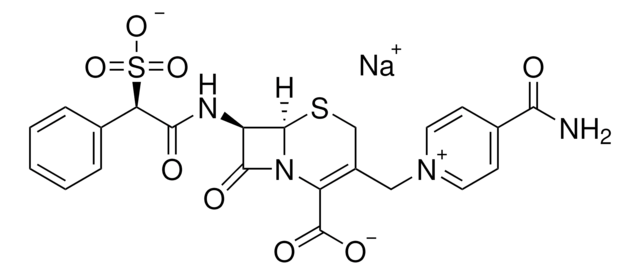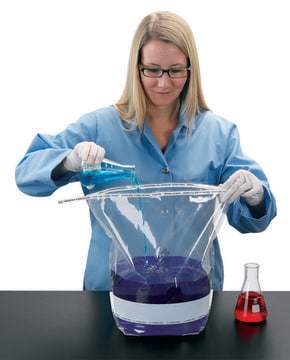17774
Potassium tellurite solution
1% in H2O, suitable for microbiology
About This Item
Productos recomendados
agency
according to ISO 6888-1:2020
Quality Level
sterility
sterile (Filtered and Aseptic Handled)
form
liquid
shelf life
limited shelf life, expiry date on the label
concentration
1% in H2O
application(s)
environmental
food and beverages
microbiology
storage temp.
2-8°C
suitability
Corynebacterium spp.
Staphylococcus spp.
SMILES string
[K+].[K+].[O-][Te]([O-])=O
InChI
1S/2K.H2O3Te/c;;1-4(2)3/h;;(H2,1,2,3)/q2*+1;/p-2
InChI key
BFPJYWDBBLZXOM-UHFFFAOYSA-L
¿Está buscando productos similares? Visita Guía de comparación de productos
Application
Other Notes
Storage Class
10 - Combustible liquids
wgk_germany
WGK 2
flash_point_f
Not applicable
flash_point_c
Not applicable
ppe
Eyeshields, Faceshields, Gloves
Elija entre una de las versiones más recientes:
¿Ya tiene este producto?
Encuentre la documentación para los productos que ha comprado recientemente en la Biblioteca de documentos.
Los clientes también vieron
Artículos
Chromogenic media enable the selective detection of S. aureus, which produce bluish-green colonies that are clearly differentiated from other species.
Chromogenic media enable the selective detection of S. aureus, which produce bluish-green colonies that are clearly differentiated from other species.
Chromogenic media enable the selective detection of S. aureus, which produce bluish-green colonies that are clearly differentiated from other species.
Chromogenic media enable the selective detection of S. aureus, which produce bluish-green colonies that are clearly differentiated from other species.
Nuestro equipo de científicos tiene experiencia en todas las áreas de investigación: Ciencias de la vida, Ciencia de los materiales, Síntesis química, Cromatografía, Analítica y muchas otras.
Póngase en contacto con el Servicio técnico










